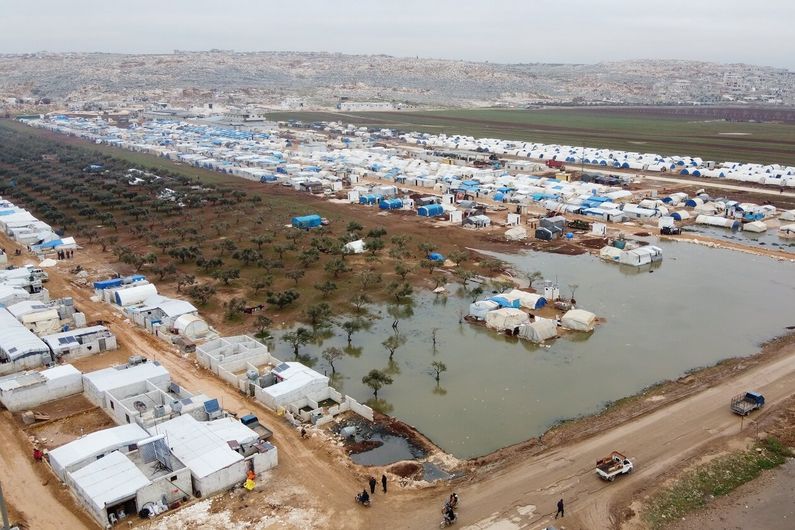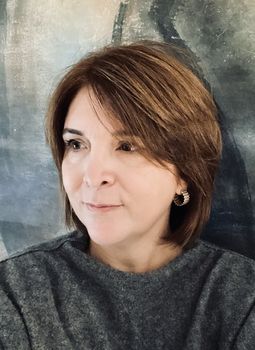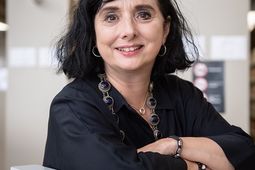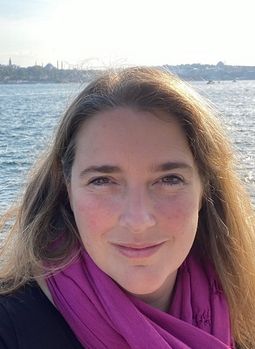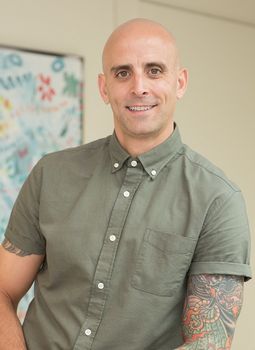The impact of war on those who experience it and the next generation
- UdeMNouvelles
10/27/2022
- Martin LaSalle
On November 2, the Faculty of Arts and Science is hosting a discussion of the traumatic effects of war on people who lived through it and on succeeding generations.
The burden of war and occupation will be the theme of a panel discussion at the University of Montreal’s MIL Campus on November 2 at 5:30 p.m. The event is organized by the Faculty of Arts and Science and UdeM’s Montreal Centre for International Studies (CÉRIUM). It will be open to the public.
Four experts will talk about the trauma suffered by people who have lived through war and deportation, and how their wounds are passed on to their children and even their grandchildren.
The speakers will include three UdeM faculty members—Roxane Caron from the School of Social Work, Catherine Mavrikakis from the Department of French-language Literatures, and Steve Geoffrion from the School of Psychoeducation—and La Presse journalist and international affairs columnist Laura-Julie Perreault.
The event will be held in person on November 2. A video recording will be made available in the following days.
Two years in a refugee camp
Roxane Caron, professor in the School of Social Work since 2013, has been interested in the plight of people in refugee camps for almost 20 years. After completing an international cooperation internship in Kazakhstan, she spent 6 months in the Bourj el-Barajneh refugee camp in Lebanon while working on her master’s degree in social work and later returned for another 18 months for her doctoral research.
“I am particularly interested in the conditions of women in refugee camps,” Caron explained. “In order to understand their daily lives and their relationship with their environment, I had to go and live with them.”
Some of the women she met during the two years she spent in Bourj el-Barajneh had been living there for decades, even half a century. “We’re talking about permanent exile,” said Caron. “During that time, these women built their homes with their own hands, in the midst of ceaseless turbulence.”
Caron is also interested in refugees who find a home after years of transiting through countries and refugee camps.
“In social work, when we intervene we have to take into account the life stages that people have passed through,” she noted. “For example, they may have had children during their exile or experienced a separation or bereavement.”
Caron continues to be actively involved in the Lebanese refugee camp. She returns regularly to continue her work, often accompanied by students.
“In international social work, it’s important to know the agencies present on the ground because that enables us to intervene more effectively in collaboration with local and international organizations,” said Caron. Involvement in community organizations is also part of the process of understanding the formal and informal conditions in refugee camps.
War and the intergenerational subconscious seen through literature
Professor and author Catherine Mavrikakis has herself “inherited” the after-effects of two wars she did not personally experience.
“I am haunted by the Second World War because of the horror stories and nightmares I heard about from my mother, who lived through the Normandy landings and emigration as a child, and the silence of my father, who fled the Algerian war,” she said.
While she pursues wide-ranging interests in her literary research, Mavrikakis is particularly drawn to writers who deal with the aftermath of war.
“When you write about war, you don’t always know the truth about the past,” she said. “Literature puts words to the things that have remained in the shadows; fiction is a way to imagine other possibilities. For example, Patrick Modiano, who was born in 1945 to a Jewish-Italian father, tells the story of the war through characters from his parents’ generation. He gives voice to those who perished. He did extensive research and filled the holes in the historical record with fiction.”
Similarly, the work of the 2015 Nobel Prize for Literature winner Svetlana Alexandrovna Alexievich, born to parents of Belarusian and Ukrainian origin, has war and its residues as its central theme. Her 1985 book War's Unwomanly Face is about the experiences of female soldiers in the Red Army during the Second World War.
Mavrikakis pays special attention to students “who come from a world less peaceful than North America: in creative work, people’s stories are sometimes simply too violent to be told. Literature can accommodate silence; it can accept a page left blank.”
Looking at ourselves from afar
Having travelled to more than 40 countries and through many war zones in the course of her career, journalist Laura-Julie Perreault is also able to bear witness to the intergenerational trauma caused by war.
In a recent column, she related encountering again the translator and fixer who had accompanied her when she was reporting on Vladimir Putin’s regime in 2014, a few months after the annexation of Crimea.
“She had introduced me to her grandmother—her babushka—who had raised her in early childhood,” Perreault recounted. “And her grandmother, who was pro-Putin, told us how she had survived the siege of Leningrad for 900 days and nights. It was very moving because my translator had known nothing of this story, and she became quite emotional as she translated it.”
The episode encapsulated the way trauma, both individual and collective, can become intergenerational. When Perreault met the translator again a few weeks ago in Istanbul, she told Perrault she felt echoes in the present day of the upbringing she had received from her grandmother, who had experienced the oppressive 70-year-long Soviet regime: “People conformed to avoid attracting attention, to stay out of trouble, to survive.”
Perreault has observed this cloak of silence in other countries where the deeds of the powerful have gone unpunished. And she sees a parallel with the situation of Indigenous peoples here in Canada.
She believes the international legal system is starting to take a different approach. For example, there has been a concerted effort to document events in Syria and Ukraine, and the redress that may result could become a model for healing the traumas of the past, at home and abroad.
Learning to live with trauma
Steve Geoffrion’s research focuses on the symptomatology, risk factors and treatments for post-traumatic stress, particularly among military personnel and war journalists.
“These symptoms affect the mental health of military personnel who have been on the battlefield, often because they committed acts that went against their own values,” Geoffrion explained.
He said the success rate of treatment for this population is at most 25%: “Today, therapies for soldiers who have seen combat and for war reporters try to help people live with the trauma rather than to wipe it away. Identifying and understanding the triggers and manifestations of the trauma can help bring them under control.”
“Among refugees, we see reactions that are similar to those of soldiers but the causes are different and much more complex,” Geoffrion observed. “In their case, treatment is more difficult because of that complexity, and also because they may not want to revisit their trauma. And unfortunately, in many cases, they can’t afford therapy.”
Geoffrion therefore advocates community-based solidarity with refugees: “First and foremost, they need to be made to feel safe. Providing refugees with support in their immediate surroundings is everyone’s job.”
IN A NUTSHELL
What? Discussion on The burden of war and occupation
When? Wednesday, November 2, 2022, 5:30 to 7:00 p.m.
Where? Mil Campus, Room A-1501.1 (A wing) - 1375 Thérèse-Lavoie-Roux Avenue, Montreal
Price? Free
Space is limited: Register.
The event will be held in person on November 2. A video recording will be made available in the following days.


